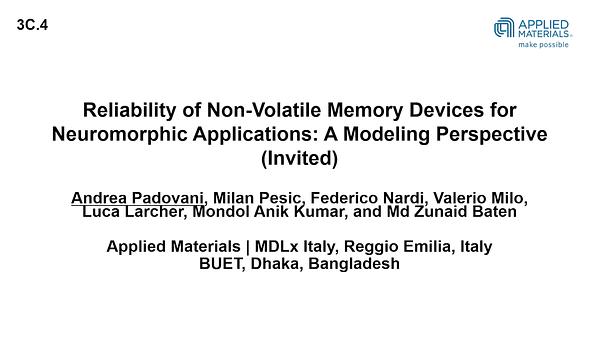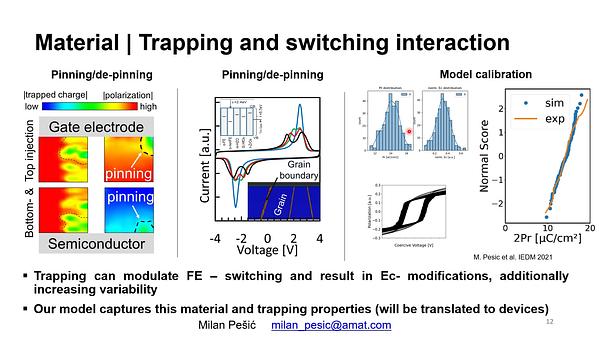Andrea Padovani, Communications Chair
University of Modena and Reggio Emilia
neuromorphic computing
retention
hzo
ferroelectric
rram
degradation
fefet
electronic synapse
device simulations
3d-nand
ginestra®
charge – trapping
mw
ferroelectric hfox
2
presentations
7
number of views
SHORT BIO
Andrea Padovani received the graduation degree in electronic engineering from the University of Modena and Reggio Emilia, Italy, and the Ph.D. degree from the University of Ferrara, Italy. After holding several positions with the University of Modena and Reggio Emilia, he co-founded MDLab s.r.l., Italy, in 2013 and MDLsoft, USA, in 2017, two companies developing and marketing the commercial semiconductor device simulation software Ginestra. He has authored and co-authored over 140 technical papers. His research interests include the modeling of dielectric degradation and breakdown of transistors and the modeling of nonvolatile memories. He is/has been a Committee Member of IEEE International Integrated Reliability Workshop, IEEE International Reliability Physics Symposium, International Symposium on Very Large Scale Integration Technology, Systems and Applications and of the European Symposium on Reliability of Electron Devices, and Failure Physics and Analysis.
Presentations

Reliability of non-volatile memory devices for neuromorphic applications: a modeling perspective
Andrea Padovani, Communications Chair and 6 other authors

Electron-assisted switching in FeFETs: MW dynamics – retention - trapping mechanisms and correlation
Milan Pesic and 5 other authors